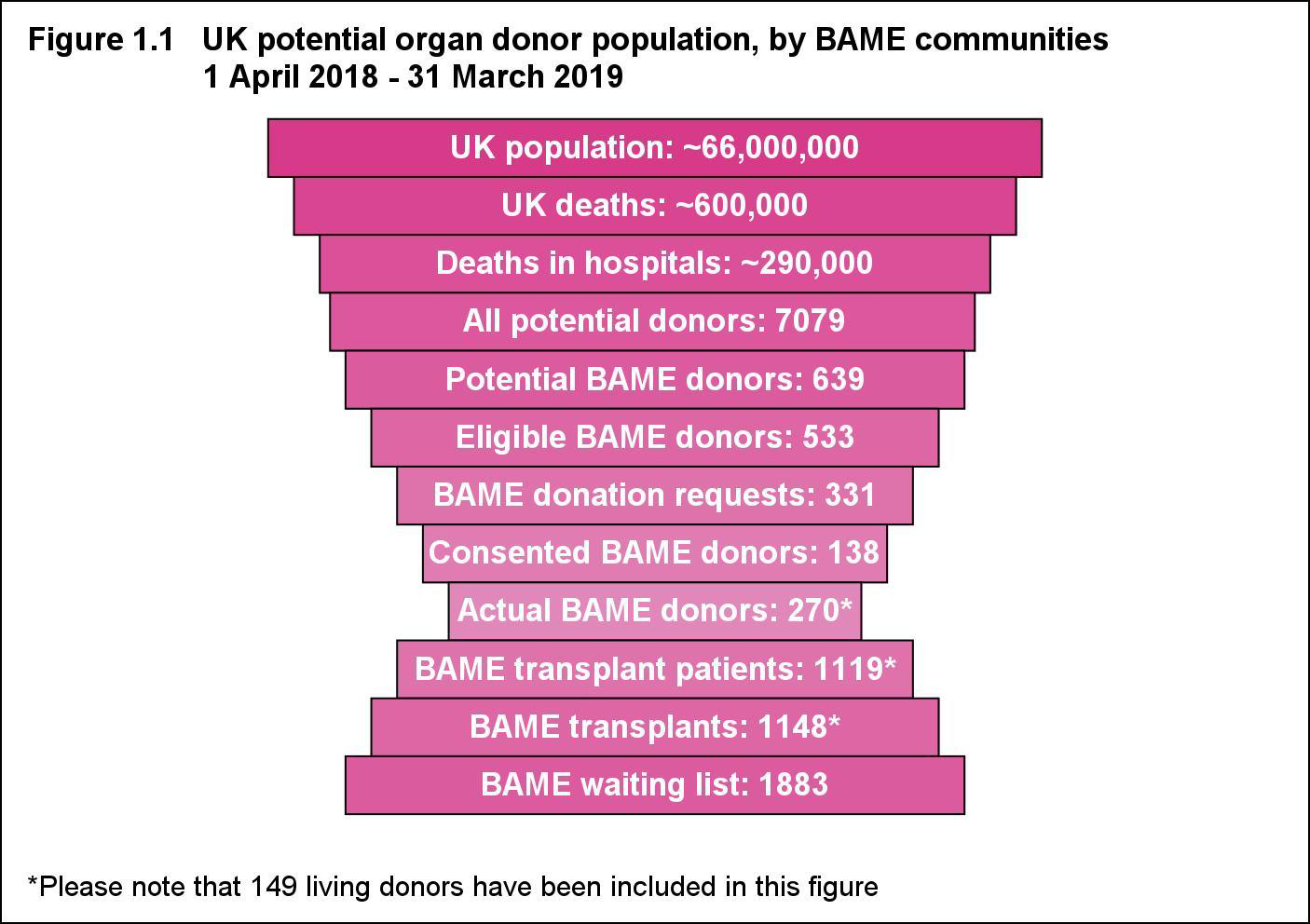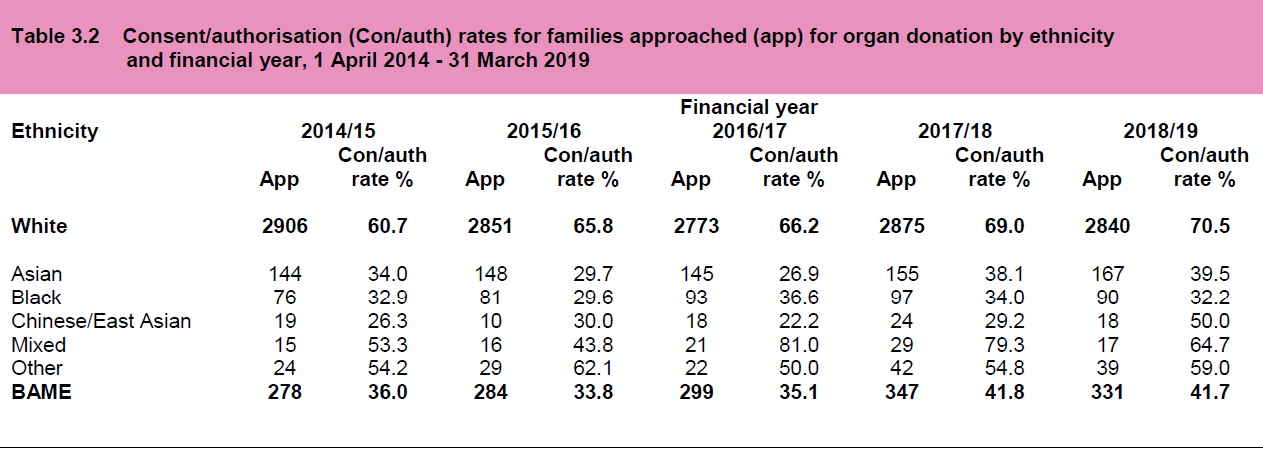Black, Asian & Minority Ethnic (BAME) groups & Organ Donation

Black, Asian & Minority Ethnic (BAME) groups represent 31% of the active transplant list but only 6% of the deceased donors and 16% of the live donors.
So why does this matter?
• Transplantations are more successful when the donor and recipient are from the same ethnic background (due to blood group and tissue type compatibility).
• As a result, BAME group patients wait on average 1 year longer than their white counterparts.
So we really need everyone who cares about this issue to spread the word amongst their communities and become an advocate of change. If you are interested let us know. And better still if you want to drive a programme of activities and communication then we want to hear from you. Email us at info@sgkpa.org.uk
Black, Asian & Minority Ethnic (BAME) Groups and kidney health
Black and south Asian people are three to five times more likely to have kidney failure than white people, but many are unaware of the condition.
The Facts Why BAME patients need more donors from their communities
BAME communities are not donating enough organs to help their fellow community members. The situation has improved (51% increase in deceased donors in the last 5 years to 8% of all deceased donors) but the key national statistics show that:
- In 2018-19, BAME patients accounted for a third of patients on the transplant waiting list, approximately a quarter of all transplants but only 10% of donors were from BAME communities.
- BAME patients on the transplant register have a median 240 days longer wait than white patients. For black patients it is nearly a year. This is because the donor system works by pairing recipients with close tissue-type matches which maximises the chances of a successful outcome. Tissue-type is strongly correlated with ethnicity.
- One year after being listed for a kidney transplant, 31% of white and 19% of BAME people have received a transplant. Five years after listing, 75% of white and 69% of BAME people have been transplanted while 7% of white and 6% of BAME people have died on the list.
- There were 121 deceased donors of Asian, Black or Chinese origin but there were 1883 patients of these ethnic backgrounds on the active transplant list.
- In 2018/19 Asian people were 3% of deceased kidney donors but 17% of recipient and 19% of people on the transplant waiting list.
- In 2018/19 Black people were 1% of deceased kidney donors but 11% of recipient and 12% of people on the transplant waiting list.
- 31% of patients the transplant register are Asian or Black but only 8% of the deceased donors.
- 56% of people opting out of the donor registry were Asian (mainly Bangladeshi and Pakistani).
- As a result of the above, the majority of transplant donors are white across all recipient ethnic groups: approx. 80% of transplants in Asian, black and Chinese/East Asian and mixed race people are from white donors.
- The Asian, Black and Chinese communities are more reliant on living donors. There are roughly twice the number of living vs.deceased donors compared to those of white ethnicity.
The following tables show the source of some of these facts.



For the full report and evidence produced by the NHS Blood and Transplant service (source for this article) is here:
Organ Donation and Transplantation data for Black, Asian and Minority Ethnic (BAME) communities
What does my religion say?
The major religions in the UK support the idea of organ donation and transplantation. If you’re not sure about your religion’s teachings, then find out more from the pages below:
Important videos made by the Black & Asian Communities.
People have made these appeals to their communities for more people to join the organ donor register.
The Black community
The Asian Community
People from the Hindu religion
Film - Making a gift of life possible
This film was published in July 2011 by the Hindu Forum of Britain, the Hindu Healthcare Society and BAPS Charities in partnership with the Department of Health.


